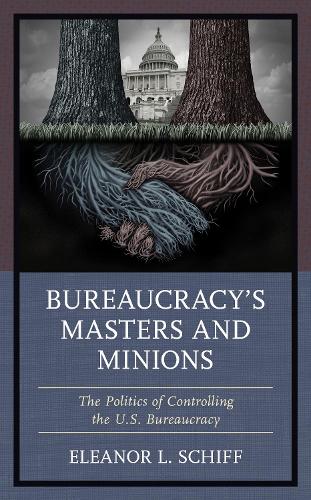
Bureaucracys Masters and Minions: The Politics of Controlling the U.S. Bureaucracy
(Hardback)
Available Formats
Publishing Details
Bureaucracys Masters and Minions: The Politics of Controlling the U.S. Bureaucracy
By (Author) Eleanor L. Schiff
Bloomsbury Publishing PLC
Lexington Books
23rd July 2020
United States
Classifications
Professional and Scholarly
Non Fiction
352.630973
Physical Properties
Hardback
154
Width 162mm, Height 229mm, Spine 16mm
435g
Description
In Bureaucracys Masters and Minions: The Politics of Controlling the U.S. Bureaucracy, the author argues that political control of the bureaucracy from the president and the Congress is largely contingent on an agencys internal characteristics of workforce composition, workforce responsibilities, and workforce organization. Through a revised principal-agent framework, the author explores an agent-principal model to use the agent as the starting-point of analysis. The author tests the agent-principal model across 14 years and 132 bureaus and finds that both the president and the House of Representatives exert influence over the bureaucracy, but agency characteristics such as the degree of politization among the workforce, the type of work the agency is engaged in, and the hierarchical nature of the agency affects how agencies are controlled by their political masters. In a detailed case study of one agency, the U.S. Department of Education, the author finds that education policy over a 65-year period is elite-led, and that that hierarchical nature of the department conditions political principals influence. This book works to overcome three hurdles that have plagued bureaucratic studies: the difficulty of uniform sampling across the bureaucracy, the overuse of case studies, and the overreliance on the principal-agent theoretical approach.
Reviews
Citizens and politicians of all stripes generally agree that controlling "the bureaucracy" is difficult, elusive, and frustrating. In this new book, Eleanor Schiff (Bucknell Univ.) explores the question of "who controls the bureaucracy" through a quantitative analysis of 139 agencies and a case study of US education policy at the federal level. The author's extensive Washington experience informs her understanding of the issue and the book's central theme: "political control of the bureaucracy is contingent on characteristics of the bureaucratic agency itself" (p. 6). She makes the case for an "agent-principal" approach to replace the simpler "principal-agent" approach traditionally employed in evaluating political control of bureaucratic agencies. . . Schiff's research supports some surprising findings: for example, Republican administrations move education policy in a slightly more liberal direction, and Democratic administrations have the opposite effect. She also finds that education policy is not responsive to public opinion, at least in the short term. Overall, Schiff concludes that the president and Congress do influence bureaucratic agencies, but agency structure and staff composition condition the extent and nature of that control. Summing Up: Recommended. All readership levels.
Author Bio
Eleanor L. Schiff is visiting assistant professor of political science at Bucknell University.
